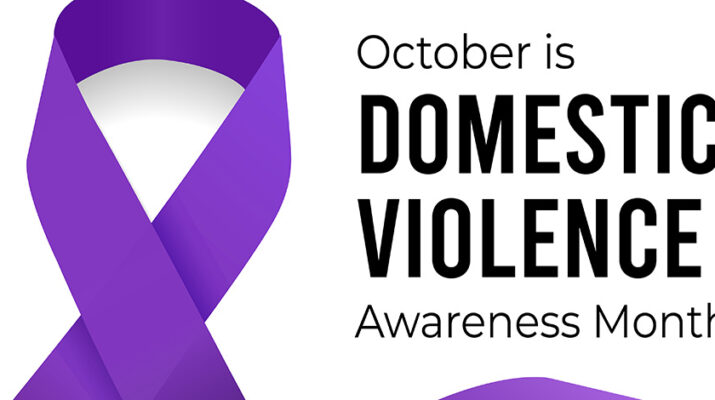By Deborah Jeanne Sergeant
Surviving domestic abuse or domestic violence requires not only escaping the reach of the perpetrator to achieve physical safety, but also recovering emotionally and mentally.
“There may be a period that’s crisis intervention for that person,” said Jill Woodruff, board-certified art therapist and licensed mental health counselor in private practice in Dansville, “and after that period, there used to be a term ‘battered woman syndrome’ but men also experience this. It usually involves them having to revamp their whole identity. It sounds extreme. It looks like symptoms of grief and loss.”
For a long time, the survivors denied their own thoughts, wishes and needs to fulfill the perpetrator. Some survivors were dominated by an abuser so long that they no longer know how to make decisions or even what they want anymore, from choices as trivial as what to eat for dinner to choices as important as who to date. This can place them in danger of becoming trapped in another abusive relationship again.
“Once safe, the trauma will poke at them for a long period of time depending on how they manage it,” Woodruff said. “Because the circumstances of abuse are gone, the person should feel entirely well. But they have to unlearn feelings they had during the abuse to move forward.”
She likens it to the processing required for grief and loss. The stages are not necessarily linear and it takes time to work through it, as victims have been conditioned to live under the perpetrator’s control over every area of their lives for months and typically years. Before diving into another romantic relationship, it’s vital to recover first.
Perpetrators do more than hit. Abuse can also include intentional and persistent mental, emotional, spiritual and sexual abuse. Mental abuse includes intimidation, mind games, gaslighting and manipulation. Emotional abuse can take the form of “love bombing” followed by withdrawal, threats, cruelty and completely withholding love and affection. Spiritual abusers may restrict or force participation in particular worship and spiritual expression and use ever-shifting “rules” about spiritual practice to control the victim. Sexual abuse involves using sexual practice for manipulating the victim, such as forcing or withholding intimacy or demanding unwanted types of sexual activity. The foundation of all abuse is consistently using means to control and dominate the other person.
In addition to the brainwashing aspects of abuse, survivors suffer the loss of their relationship (difficult though it was) and often their home, pets, work, friends and possessions. Numerous areas of their lives change in a flash.
“Always with mental health, there’s no right answer as to how anyone is supposed to feel,” Woodruff said. “Give people time and space to feel. Hold a space for them and give them time.”
Woodruff advises survivors to stay in one-on-one therapy as long
as possible.
“That gives you someone outside your own head giving you input,” she said. “Find a group to participate in to feel validated.”
Caring friends can also help provide support in rebuilding a sense of self-worth and confidence. Oftentimes, survivors are more gracious to others than themselves.
“Ask yourself, ‘What would a healthy relationship look like if I saw it for someone else?’” Woodruff posed. “Your own lens is skewed by abuse. Providing reflective distance for ourselves can help us see what’s healthy for someone else is also healthy for ourselves.”
This strategy can help build better skills for navigating relationships, whether friendships or romantic relationships. Survivors need to learn how to set personal boundaries that are neither too permissive nor too restrictive.
Most abusers damage the survivor’s relationships with others as isolating the victim helps keep the abuse secret and prevents supportive friends and loved ones from helping. Becoming involved in group settings with a hobby or other activity can help rebuild friendships and build new friendships.
“Get involved in a supportive community setting with a hobby or something that feels good and is unconditional and supportive,” Woodruff said.
This can be a good time to pick up a beloved hobby that was dropped or to try something completely new. Some people find that practicing martial arts provides a supportive community of new friends, a physical activity that is both mentally and physically engaging and practical skills that can boost their confidence.

